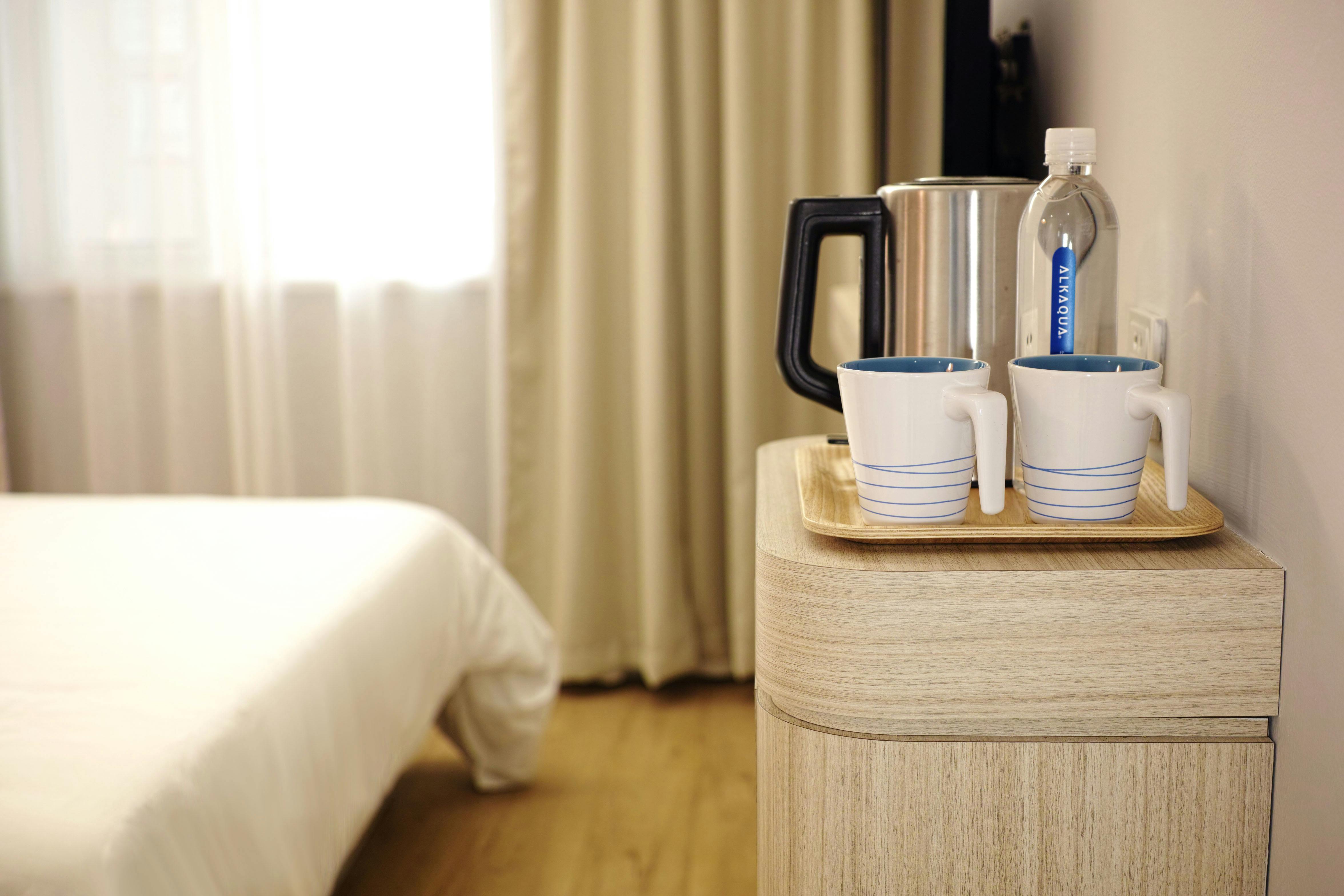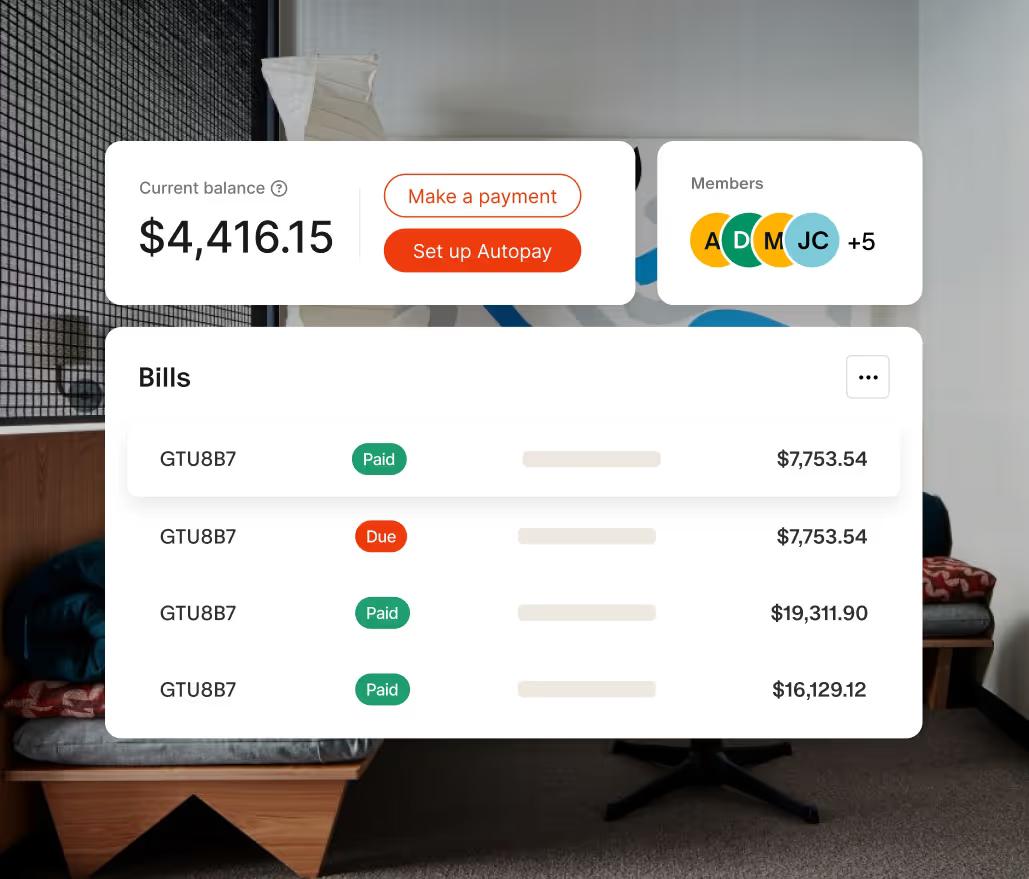How to manage business travel expenses: A concise guide

When it comes to business travel expenses, charges pile up fast. Then come the receipts: Print-outs of the client dinner bill, venue rental charges, and Uber email confirmations.
Employees must log their spending so finance teams can manage approvals and compliance. But what actually counts as an employee travel expense, and how do you keep track of it all without drowning in paperwork?
In this guide, we’ll break down what the IRS considers a legitimate travel expense, how to calculate travel expenses for work, and the best ways to track your expenses efficiently.
What are business travel expenses?
A business travel expense is any cost incurred while traveling for work. When the job takes an employee beyond their usual location—whether it’s a quick client meeting or a week-long conference—those flights, hotel stays, cab rides, and meals aren’t personal costs. They’re necessary corporate travel expenses, which you should track and submit for reimbursements or tax deductions.
But not every expense qualifies. To be considered a business travel expense, a cost must be directly related to work. Something like a client dinner would be covered, but a late-night minibar raid or an elongated hotel stay for sightseeing wouldn’t.
What to include in a business travel expense list
The IRS has specific guidelines for what counts as a legitimate business travel expense on your tax return. These rules should guide your Travel & Expense policy to ensure compliance and keep your travel budget in check.
Here’s a breakdown of what business travelers can claim as a deduction
Transportation costs
This includes airfare, bus tickets, car rentals, airport shuttles, and taxis or rideshare services. Likewise, workers who use their personal vehicle can track mileage and request a business travel reimbursement for their fuel costs.
Lodging
Official hotel stays are an obvious deductible travel expense, but other accommodations like an Airbnb or hostel also qualify. Make sure to document the total cost after you check out of your lodging, and keep receipts for the duration of the business trip.
Meals and per diem
You can generally deduct meals during a business trip. Companies may provide daily per diem allowances for meals, while some reimburse for actual costs via expense reports.
That said, the IRS doesn’t consider “lavish or extravagant” meals tax deductible. While what qualifies as “lavish” is open to interpretation, the rule of thumb is to keep meals within average meal costs. Cash tips are also considered legitimate business expenses, so don’t leave your servers hanging.
Conference or event fees
Travel expenses for conventions and events are tax deductible if attendance is a necessary part of business travel. This can include registration, event fees, and other expenses, including shipping baggage, samples, or display materials to your destination.
Incidental expenses
Small business travel expenses—things like road tolls, premium internet access, and laundry services—add up quickly. While they may seem minor, they’re still necessary for conducting business away from home. To simplify business travel budgeting, some companies provide daily per diem allowances for meals and incidentals.
What isn’t a business travel expense?
Just because you’re away from home on a business trip doesn’t mean you can deduct that souvenir from the hotel gift shop. Tax write-offs and travel reimbursements must have a clear, necessary business purpose.
Here’s a look at a few common items that don’t cut a deductible business expense.
Personal entertainment costs
There’s nothing wrong with treating yourself, especially after a long day of back-to-back meetings. But unless it’s directly related to business purposes, like entertaining a client, personal entertainment costs aren’t tax deductible. This includes attending a local museum, concert, or local spa when you’re off the clock.
Alcohol or excessive dining costs
While business dinners are a common expense, the IRS draws the line at luxurious meals. A meal with a client is fine, but expensive bottle service or an elaborate tasting menu might be considered more extravagant than necessary. Keep meals reasonable to avoid challenges to a tax-deduction.
Gifts or souvenirs
A gift shop purchase for yourself or friends isn't tax deductible, but when it comes to gifts for clients, the IRS makes some exceptions. They allow businesses to deduct gifts that are directly related to a business relationship—though there’s a catch. The IRS limits deductions to $25 per recipient per year. A custom-branded pen, gift basket, or relevant book might qualify as long as it stays within that limit.
How to manage business travel expenses
Remove the headache from managing business expenses by following a few best practices that’ll help employees track their travel costs.
Set clear travel policies
Whether it’s a cap on hotel costs or limits for per diem rates, communicate clear expectations to employees with a formal travel policy. This means setting easy-to-understand guidelines for flights, hotel stays, meals, and transport.
Likewise, stipulate protocols for how to document every type of expense and tax write-off. This avoids miscommunications between accounting and business travelers, saving everyone time and energy.
Use a centralized booking platform
One of the easiest ways to track business travel expenses and manage deductions is with a centralized booking platform. With Engine, you can book flights, accommodations, and transport in one place while also giving travel managers visibility into spending.
A travel management tool like Engine also lets you control costs, share travel policies, and reduce administrative time spent processing receipts and reimbursements.
Leverage corporate credit cards
A company credit card statement is a simple way to track expenses, keeping business and personal spending separate. By using corporate cards, travel managers can easily track transitions and reduce the need for manual receipts. And credit cards with rewards or miles can help you earn extra travel perks.
How to track business travel expenses in 3 steps
Tracking travel expenses is a breeze if you approach it with a step-by-step strategy. By staying organized from the start you’ll avoid scanning old credit card statements for possible last-minute deductions come tax season.
1. Tag each business trip expense
Track business expenses from the moment you make the purchase. Tagging each expense as you go helps alleviate headaches in the future. Use apps that allow you to assign tags quickly, and you’ll be amazed at how easy it is to see where your business trip budget goes.
Also, a little preparation can make business trip deductions easier to track. Before a client dinner, consider recording the date, location, people, and business purpose. Then, all you have to do is snap a photo of the receipt for your records.
2. Calculate total trip expenses
At the end of your business trip, tally up all your travel expenses. Knowing the total cost gives you a clear view of your spending, making it easier to submit a reimbursement or keep track of what to deduct on your tax return. Seeing the final cost will also give you a sense if any errors were made in your reporting, especially if the number is far more (or less) than expected.
3. Categorize trip expenses
Break down all your travel expenses into categories like transportation, hotel, meals, and incidentals. Organizing your expenses ensures everything aligns with your company’s travel policy. It also highlights blindspots and helps you clearly define deductibles to avoid discrepancies with the IRS.
Manage business travel spending with Engine
Business travelers have enough to keep in mind without sifting through a mountain of receipts. Engine makes expense reporting easier to manage with our all-in-one platform, where you can book flights, accommodation stays, and car rentals.
With real-time expense tracking and easy access to your company’s travel policy, Engine helps travel managers and team members stay on top of costs without the hassle.








.jpg)
















.jpg)


.jpg)




.jpg)

![How to Get the Best Hotel Deals and Rewards [Infographic]](https://cdn.prod.website-files.com/66a41388b1be9ba182f1e80c/66a41388b1be9ba182f1f257_Windsor_Hotel_-_in_winter.avif)








